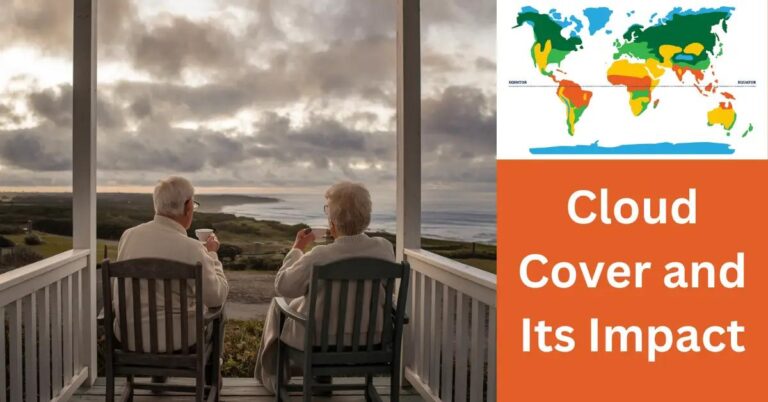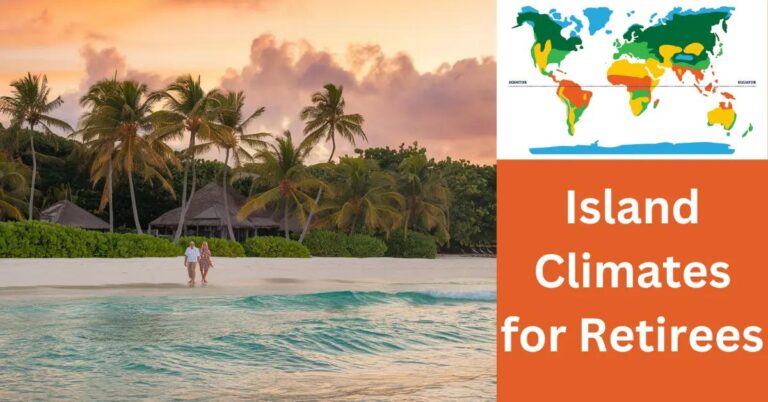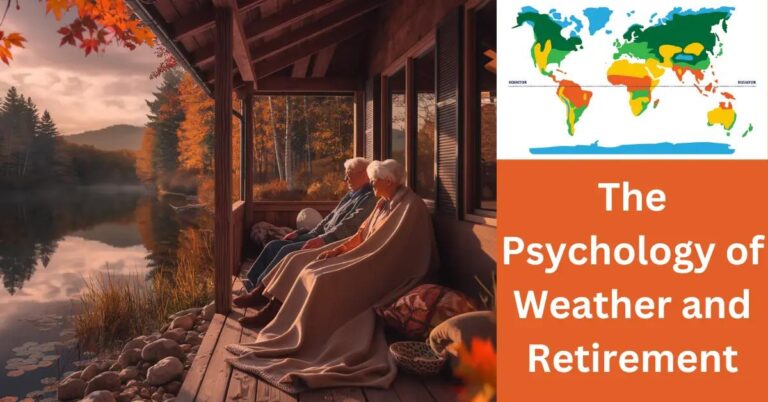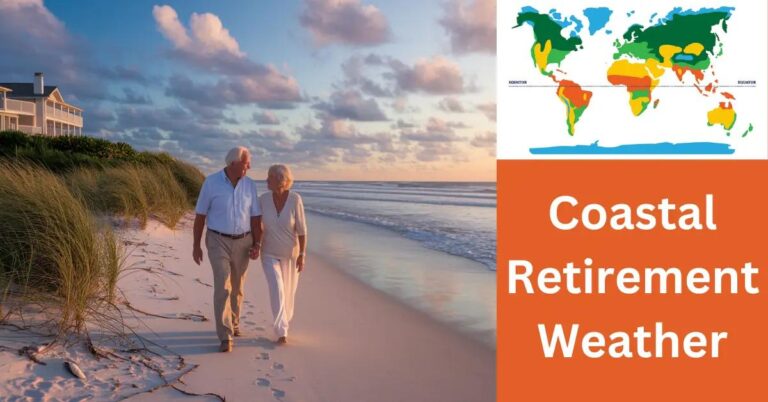TL;DR:
- Tropical humidity varies by location, with ocean proximity and elevation influencing levels.
- Coastal areas like Florida's east coast and some parts of Costa Rica experience fluctuating humidity.
- Retirees can opt for places with lower humidity, like the Canary Islands, Azores, or Mauritius.
- Humidity impacts health, comfort, and daily activities; proper management is crucial.
- Using dehumidifiers, proper ventilation, and lifestyle adjustments can mitigate humidity effects.
- Moisture can both ease joint pain and worsen conditions like asthma or arthritis.
- Humidity affects social life; indoor activities become preferable.
- Consider environmental sustainability and potential climate impacts in humid tropical regions.
- Economic factors include living costs and retirement incentives in humid areas.
Navigating the humidity levels in tropical retirement spots can feel like exploring a jungle. Some areas are as damp as a rainforest, while others balance sea breezes with just the right amount of moisture. As a longtime explorer with a passion for tropical climates, I've delved into which hotspots offer the most comfortable conditions. Discover why some near-sea locations aren't as muggy and which islands boast perfect retirement climates. Let's find your ideal tropical oasis!
How Do Humidity Levels Vary in Tropical Retirement Spots?
Yes, tropical regions often have high humidity. The heat and constant rain keep these places humid. But not every tropical spot has the same level of humidity. Some factors, like how close you are to the ocean or how high up you are, can change how damp the air feels.
Places by the sea, like on the east coast of Florida, can have both high and low humidity. When sea breezes blow in, they bring cooler and drier air, lowering humidity. A place's humidity also changes with the season. During the rainy season, humidity spikes. In the dry season, it drops, making the air more comfortable.
Take, for example, Costa Rica and Thailand. Both are tropical. Costa Rica's Pacific coast is less humid than the Caribbean side. Thailand's hill regions feel cooler and less moist than its beaches.
In fact, when comparing tropical countries, The Maldives might feel stuffier than Fiji, thanks to its lower elevation and different weather patterns. One advantage of picking a tropical place with lower humidity is comfort. Steady humidity levels can be better for your health and well-being.
On warm days in the tropics, humidity can make the heat feel more intense. But when it is too high, it can be tough on the body to cool down. That's why understanding how humidity varies can help choose your perfect tropical retirement spot. Want to know more about how changing seasons affect humidity levels? You can learn even more from the Climate and Weather page of the National Weather Service.
What Are the Best Tropical Places for Retirees Considering Humidity?
Choosing the best tropical place for retirement isn't just about beaches. Humidity levels can define how comfortable life will be. When eyeing retirement spots, I look for islands with manageable humidity. But which tropical island is best for retirement? For those seeking comfort, choosing an island with less humidity is vital. This makes the air more breathable and daily life more pleasant.
The Canary Islands come to mind. They boast lovely warmth without the stickiness found in other tropical spots. The islands are cooled by trade winds, making them a standout choice. Another good option is the Azores in Portugal. The climate is mild, with humidity that’s easy to handle.
If you want something off the beaten path, consider Roatán in Honduras. This island has favorable weather all year round, minus the overwhelming humidity. Additionally, exploring places like Mauritius might surprise you. The east coast offers stunning views and a cooler breeze, keeping humidity in check.
Choosing a place to retire isn't just about the weather, though. Infrastructure matters, too. The right infrastructure helps manage the impacts of humidity. Well-planned cities help ensure houses stay cool. They have roads equipped to handle tropical rain, making them safer and more practical.
Consider both popular and lesser-known spots. This increases your chances of finding a comfortable environment. With the right mix of climate and infrastructure, retirement in the tropics becomes truly enjoyable. Look into local guides or consult with longtime residents for firsthand experience. Doing this ensures your retirement is spent in comfort, not running from relentless humidity.
How Can Retirees Manage Humidity in Tropical Climates?
Managing indoor humidity can be a challenge for retirees in tropical climates. If you ask, "How do you manage indoor humidity?" the short answer is: use dehumidifiers and proper ventilation. Dehumidifiers pull moisture from the air, making your home more comfortable. Alongside this, proper ventilation allows air to circulate, keeping humidity down.
Is 70-75% humidity normal for a beachside apartment? Yes, it is normal. Beach areas have high humidity due to the sea. Retirees need strategies to manage this, starting with simple choices like moisture-wicking clothing and air conditioning that has good ventilation controls.
Practical tips for adapting include using moisture-absorbing products and opening windows when it's cooler outside. Ceiling fans can help circulate air, reducing the effects of humidity. Home technologies, like smart thermostats, can help control temperature and humidity. Regularly checking weather apps can help you plan your indoor and outdoor activities to avoid the high humidity times.
Lifestyle adaptations can also make a big difference. Choosing to exercise during cooler times or in air-conditioned spaces ensures you remain active. Staying hydrated is crucial, as the body loses more water due to a humid climate. When considering different housing types, keep in mind that apartments high up often get more breeze, helping with natural cooling.
Some communities have local resources to help new retirees adapt to the climate. Neighbors who have lived in the area for longer might have tips and solutions that work well locally. Personal stories of retirees can be a great source of advice and comfort. Listening to how others have successfully adapted can provide you with new solutions and ideas on how to cope with tropical humidity. By sharing tips and learning from others, you can thrive in your new tropical paradise.
What Are the Health Impacts of Humidity on Retirees?
What health benefits and risks does tropical humidity present? Tropical humidity can both help and harm older people. On the bright side, moist air can ease joint pain. Humid air helps keep skin soft, which lowers the risk of dryness. On the downside, high humidity can make breathing hard for those with asthma or COPD. It can also worsen arthritis.
What humidity levels are best for health? A range from 30% to 50% is best for comfort and health. Humidity over 60% can be sticky and cause mold and dust mites. These can lead to allergies and breathing problems. It is crucial for retirees to manage their indoor air to stay healthy.
What issues might seniors face with high humidity? Seniors often face tiredness and dehydration in high humidity. The risk of heat stroke rises as the body struggles to cool down. An increase in mold spores can also trigger allergies.
How can retirees prevent humidity-related problems? Ways to protect against these issues include using air conditioning or dehumidifiers. Keeping homes well-ventilated helps hide humidity. Light clothing and staying in cool areas also help. Seniors should drink lots of water and avoid the sun during peak hours.
What do health professionals say about humidity? Experts note that humidity greatly impacts well-being. For example, Dr. Lisa Turner states that consistent humidity control is key. Her advice often highlights the importance of tailoring one's living space.
Have retirees shared their experiences with tropical climates? Yes, many retirees report changes in health tied to humidity. Some praise the warmth, noticing less joint pain. Others express surprise at how quickly they had to adapt to breathing conditions. Each experience is unique, emphasizing personalized solutions. Taking these insights seriously can make a tropical retirement safe and enjoyable.
How Does Humidity Influence the Lifestyle and Daily Activities of Retirees?
Humidity shapes our daily life in tropical places. It affects everything, from activities we choose to how we connect with others. High humidity can make simple tasks, like walking, more tiring. You must consider this when planning daily routines, especially outdoor ones.
Next, let’s explore activities influenced by humidity. Many retirees suggest water exercises to cool off and stay fit. Swimming or aqua yoga lets you enjoy fun exercise while staying comfortable. Avoid mid-day heat; instead, plan walks in the early morning or evening.
Humidity impacts our social life and community too. Gathering indoors with air conditioning becomes more appealing. Locals often gather for indoor games, book clubs, or movie nights. It’s important to find these opportunities to stay engaged and connected to the community.
Balancing leisure time with well-being in humid areas requires some effort. Break large tasks into smaller ones and rest often. Stay hydrated—not only does water help with comfort, but it’s also essential for health. Use a fan or air purifier to reduce indoor humidity levels.
I’ve heard many anecdotes from retirees. A friend shared how they swapped hiking for bird watching early in the morning. This adjustment helped them enjoy nature without feeling overwhelmed by the humidity.
The local culture often supports active living. Many communities host indoor events or provide facilities like gyms or libraries. These spaces become popular during high-humidity days. Locals may also host craft sessions or offer cooking classes, which become great ways to engage socially while staying cool.
Understanding and adapting to humidity is key to enjoying a tropical retirement lifestyle. Engaging in the right activities ensures comfort and satisfaction while maintaining a social and active life.
What Are the Economic and Environmental Considerations for Retiring in Humid Regions?
When thinking of tropical retirement, consider living costs. Tropical areas have different costs depending on humidity levels. Places with lower humidity can be pricier, but they might offer better comfort and health benefits.
Economically, retiring in humid regions has its challenges and perks. On the plus side, some countries offer tax breaks for retirees. Governments often provide incentives like discounts on property taxes to attract retirees. Checking these incentives can save you money.
Environmental sustainability is key in the tropics. These areas work to preserve natural beauty while supporting local ecosystems. Many focus on environmental sustainability and conservation efforts in tropical areas, recognizing the effects of climate change. Choosing a place that values the environment ensures a healthy future.
Climate change is a big concern for these spots. Rising sea levels and stronger storms affect real estate and living conditions. It's smart to consider this in your retirement planning. Eco-friendly homes and sustainable practices show how communities adapt to protect their future.
Look at real estate trends in tropical zones. Demand varies, but humid places often have affordable properties. At the same time, market fluctuations tied to climate change might affect long-term investments.
If you pick a humid region, think about the impact on your finances. The best places to retire for weather and taxes are those balancing cost, climate, and lifestyle. Choosing wisely can lead to a peaceful and fulfilling retirement in a tropical paradise.
Conclusion
Choosing the right tropical retirement spot involves understanding humidity levels and their impact. We explored how coastal proximity, altitude, and seasons change humidity. I highlighted tropical places with varied humidity and considered retirement-friendly locations. Managing humidity involves using home tech and lifestyle changes. Humidity can affect health; knowing the balance is key. Lastly, humidity influences daily life and costs. Retirees can thrive in the tropics by preparing. So, are you ready to embrace the humidity with open arms and an informed mind?












